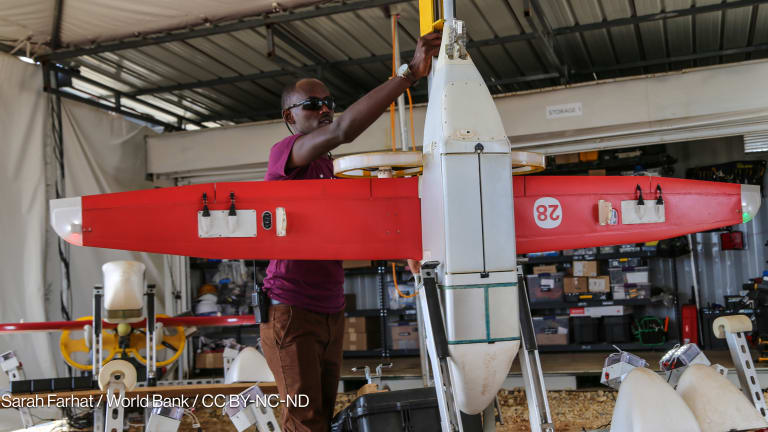
Afghanistan will rely heavily on foreign aid for the next two decades, a top government official tells Devex in an exclusive interview. However, he says the country is doing its best to ensure that the money — roughly 97 percent of its budget now comes from abroad — is well spent.
Proof of that, according to Wais Ahmad Barmak, Afghanistan’s rural rehabilitation and development minister, is found in ongoing efforts to reform mining and procurement laws that aim to quell fears of corruption and boost investment ahead of next year’s deadline for the withdrawal of international troops.
Kabul is also considering transferring some of its duties, including procurement, to its 34 provincial governments, Barmak told Devex.
“We’ve just finished the provision of our procurement law [that] is also now recommending the delegation of authority, financial authority, to the provinces to make sure there are certain activities that need to be procured locally,” said Barmak. “These are ongoing efforts. We are changing our country in a functional, working society and a working government.”
Efforts to decentralize procurement, he said, illustrate a new level of political maturity a decade into rebuilding the war-torn country.
With devolution, Barmak said, local managers will not have to wait for national officials to dictate what is good or not. Provincial governors, he said, will now have a handle on development.
Such reforms will be watched closely by the aid community, as well as foreign donors and investors wary of corruption, mismanagement and waste.
Just last month, the U.S. special inspector general for Afghanistan reconstruction asked Congress to consider freezing almost $20 billion of budget support still left in the government’s coffers, suggesting that the Afghan government was not ready for the influx of money.
If Kabul was ill-prepared to handle big funding, would its provincial governors be better off?
Barmak dismissed concerns about the prospect of regional and local government institutions handling international partnerships, noting that the central government would still handle big contracts.
“Local government capacities are not yet there to manage contracting with companies at the largest scale,” said Barmak. “As long as it involves international security issues or national issues, these large contracts, they’re all managed by the central government.”
Neither should security be a concern for international partners, Barmak noted:
“These large contracts are signed and secured by big investors,” he said. “Then the whole government takes responsibility for ensuring that we all stick to our responsibilities and duties that are stipulated in the contract.”
A provincial governor and the ministry of interior can provide security for investors, he noted.
Declining aid after 2014?
In 2011, the Afghan government received about $6.5 billion in official development assistance. As it prepares its post-2014 development agenda, Kabul remains concerned about potential aid cuts.
“That actually worries us, because if that kind of international aid decline really happens in the country, then my worry is that some of the gains we’ve made will be jeopardized,” he told Devex.
Afghanistan will likely rely on foreign aid for at least two more decades, he said.
“But it will gradually reduce as we invest in a number of sectors,” he noted, citing the mining and agriculture sectors.
Since he became minister, Barmak has been meeting with U.S. officials to get assurance of continued aid.
“I have been meeting a number of lawmakers in Congress just to make sure we share our concerns and key messages that Afghanistan needs a long-term commitment,” he said.
In return, Afghanistan is eager to prove that governance is improving and issues that have kept donors and aid implementers alike suspicious of the government are being resolved.
“I think after the Toyko conference, we have put together plans [on] how to fight corruption, how to address this issue of accountability and transparency in all systems and procedures,” he noted, referring to last year’s donor gathering that resulted in $16 billion in aid pledges. “It doesn’t mean we take everything for granted,” he asserted.
Still, major donors such as the U.S. have been churning out report after report that calls into question the success of a variety of international investments. Last January, for instance, the U.S. inspector general overseeing Afghan reconstruction cited $7.3 million slated for police headquarters went unused and police vehicles worth $6.8 million were destroyed or unaccounted for.
“State building is not an easy enterprise. It has its own complication, challenges,” said Barmak. “The truth is we have made this much success, this much progress. Do you want to lose it, or do you want to collectively build on it?”
It is a question that lawmakers and aid officials in Washington and elsewhere would be hard-pressed to answer in the negative.
Read more development aid news online, and subscribe to The Development Newswire to receive top international development headlines from the world’s leading donors, news sources and opinion leaders — emailed to you FREE every business day.








